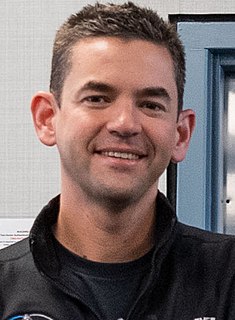A Quote by Aneel Bhusri
Candidly, when you go back to '07 or '08, it was hard to sell cloud. We started out by focusing on large enterprises on day one. Everybody thought cloud was for SMBs (small and mid-size businesses), but we made the leap that it was going to be for large enterprises, that they were going to replace their core systems.
Related Quotes
We also need to reduce corporate tax rates. This applies to small, medium and large businesses. At 35 percent, we have the second highest corporate rates in the world. It restricts the growth of small enterprises that need to plow capital back into their businesses and forces companies and jobs to move overseas.
If we have system in which government is in a position to give large favor - it's human nature to try to get this favor - whether those people are large enterprises, or whether they're small businesses like farmers, or whether they're representatives of any other special group. The only way to prevent that is to force them to engage in competition one with the other.
Our collaboration with Datapipe on a managed hybrid cloud solution for AWS removes many of the common barriers to cloud adoption. It offers customers the best of both worlds by providing Equinix's secure data center platform, including private access to AWS, along with Datapipe's expertise in designing and managing an optimal IT architecture for enterprises.
Clothing sizes are weird, they go: small, medium, large and then extra large, extra extra large, extra extra extra large. Something happened at large, they just gave up. They were like, 'I'm not doing any more adjectives; you just keep putting extras on there.' We could do better than that: small, medium, large, whoa, easy, slow down, stop it, interesting, American.
Getting last-minute cancellations can put a black cloud over an event before it has even started. If it's a large, casual cocktail party, then I'll often not say anything until the next day. But if you're not able to make it to a small, seated dinner, you have to call the host - there's nothing worse than an empty chair at a table.
Cloud computing is actually a spectrum of things complementing one another and building on a foundation of sharing. Inherent dualities in the cloud computing phenomenon are spawning divergent strategies for cloud computing success. The public cloud, hybrid clouds, and private clouds now dot the landscape of IT based solutions. Because of that, the basic issues have moved from 'what is cloud' to 'how will cloud projects evolve'.
The fact is that viewers are fickle and it's rare that such a large group of people can be categorized in any type of way. There's enough content to go around, and if we stop focusing on numbers and start focusing on the quality of the project, then I think everybody - viewers and artists alike - is going to be a lot happier.
As time goes on, I get more and more convinced that the right method in investment is to put fairly large sums into enterprises which one thinks one knows something about and in the management of which one thoroughly believes. It is a mistake to think that one limits one's risk by spreading too much between enterprises about which one knows little and has no reason for special confidence. . . . One's knowledge and experience are definitely limited and there are seldom more than two or three enterprises at any given time in which I personally feel myself entitled to put full confidence.



































